 MyDogBreeds
MyDogBreeds Bully Kutta is originated from India but Australian Terrier is originated from Australia. Bully Kutta may grow 63 cm / 25 inches higher than Australian Terrier. Bully Kutta may weigh 82 kg / 181 pounds more than Australian Terrier. Bully Kutta may live 3 years less than Australian Terrier. Bully Kutta may have more litter size than Australian Terrier. Bully Kutta requires Low maintenance. But Australian Terrier requires Moderate maintenance
Bully Kutta is originated from India but Australian Terrier is originated from Australia. Bully Kutta may grow 63 cm / 25 inches higher than Australian Terrier. Bully Kutta may weigh 82 kg / 181 pounds more than Australian Terrier. Bully Kutta may live 3 years less than Australian Terrier. Bully Kutta may have more litter size than Australian Terrier. Bully Kutta requires Low maintenance. But Australian Terrier requires Moderate maintenance
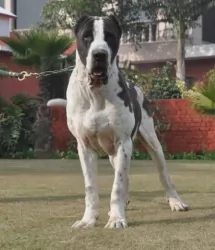 This well built, powerful dog breed is also known as Indian Alangu Mastiff or Pakistani Mastiff. These dogs come from the Punjab and Sindh region of the Indian subcontinent. It is believed that mastiff dogs came with British soldiers during the British invasion, however English Mastiffs, Bulldogs, Bull Terriers and Great Danes are seen as potential ancestors of this large dog.
This well built, powerful dog breed is also known as Indian Alangu Mastiff or Pakistani Mastiff. These dogs come from the Punjab and Sindh region of the Indian subcontinent. It is believed that mastiff dogs came with British soldiers during the British invasion, however English Mastiffs, Bulldogs, Bull Terriers and Great Danes are seen as potential ancestors of this large dog.
There are disputes about the country of origin of this breed, and some people claim that the dog comes from India, while others say it comes from Pakistan. Certainly in Pakistan these dogs are still used for fighting.
 The Australian terrier, the little terrier, is a breed developed to control vermin. The nature of this dog is very spirited. They are alert, courageous and self-confident but still very human-friendly.
The Australian terrier, the little terrier, is a breed developed to control vermin. The nature of this dog is very spirited. They are alert, courageous and self-confident but still very human-friendly.
Australian terriers were breed by the mix of the Terrier with the rough coat and Scotch Dog of Great Britain. These breeds were mixed until they produced the muscular and fearless dog for the Australian settlers. Their primary job was to control the number of rodents and snakes. They were taught to tend flocks, be an excellent guard dogs but remain friendly. This breed is still very popular as a working dog, loyal companion and dogs for show, city, home or a farm.
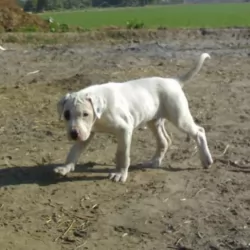 The Bully Kutta is a big, heavy, muscular dog, standing at roughly 81 – 89cm and weighing in at 70–90kg. He isn’t particularly good with children or with other pets simply because the dog is aggressive by nature. If you do opt for this large breed, you’re going to need a large garden and he is going to require a lot of exercise.
The Bully Kutta is a big, heavy, muscular dog, standing at roughly 81 – 89cm and weighing in at 70–90kg. He isn’t particularly good with children or with other pets simply because the dog is aggressive by nature. If you do opt for this large breed, you’re going to need a large garden and he is going to require a lot of exercise.
This is a dog breed that is going to require socialization and training if you want him to be obedient and calm, as he is inclined to be a dominating breed. He’s an intelligent dog and when well trained, he makes a splendid pet with firm, fair owners.
The Bully Kutta has a large, broad head which is supported by a thick well-muscled neck. The skin around his lower jaw is loose. The ears are short, set high and are mostly cropped, but other times they are left to flop over. The tail is sometimes docked but these days mostly left long and tapered.
He has a short smooth coat and is essentially white in color although the coat can also be fawn, brown, black or brindle.
 The Australian terrier has body longer than they are tall. They are small dogs with the long and thick coat with silky undercoat and short little legs. This smart-eyes breed is perfect for persons who live indoors. But, you must know that they really like to bark and communicate that way with everybody. They also have a high need for activity so it will be necessary to take him out so he can run, play and be social with other dogs. They are very intelligent, but not very responsive. They will quickly learn how to fetch, but they will have days when they just feel like fetching.
The Australian terrier has body longer than they are tall. They are small dogs with the long and thick coat with silky undercoat and short little legs. This smart-eyes breed is perfect for persons who live indoors. But, you must know that they really like to bark and communicate that way with everybody. They also have a high need for activity so it will be necessary to take him out so he can run, play and be social with other dogs. They are very intelligent, but not very responsive. They will quickly learn how to fetch, but they will have days when they just feel like fetching.
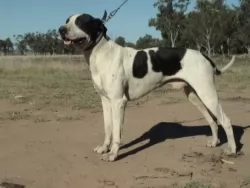 The Bully Kutta is a powerful, imposing dog and they have been nicknamed the ‘Beast from the East’. Unfortunately it is this dog’s thick bones, his looks and his strength that have him used for cruel dog fighting in Pakistan.
The Bully Kutta is a powerful, imposing dog and they have been nicknamed the ‘Beast from the East’. Unfortunately it is this dog’s thick bones, his looks and his strength that have him used for cruel dog fighting in Pakistan.
When not used for fighting, he makes a loyal, devoted companion for the owner who ensures proper socialization and training. Well raised Bully Kuttas are then good with children, being loving, protective and playful.
One just hopes that the future of this giant dog breed is brighter, and that he will be looked upon as more of a companion that just a dog-fighting object to bring in money for his owner.
 The Australian terrier is very good breed to choose if you have children. They are active and always ready to play, and they will protect the children since they have watchdog gene.
The Australian terrier is very good breed to choose if you have children. They are active and always ready to play, and they will protect the children since they have watchdog gene.
Excellent watch dog. This breed will keep your garden and home vermin free.
They are generally very polite towards strangers and highly adaptable among other dogs, but their adaptability in social life is totally up to the human and the training. They can grow to be adaptable dogs that fit well into almost any environment; city or country, house or apartment.
Since they are an intelligent breed, the Australian terrier may surprise you with their ability to learn new tricks and shock you with their ability to be very strong willed about doing what is told. It’s not that they are not the type to obey and be “a good dog”, they are so playful and silly that they will often forget that they are the god and not the human. You must start training them while they are still pups.
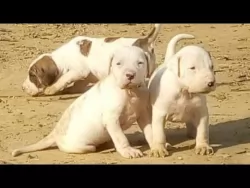 Your Bully Kutta is generally a healthy dog and not often affected by hereditary diseases, but with giant breeds such as this you will have to look out for diseases common to large dogs.
Your Bully Kutta is generally a healthy dog and not often affected by hereditary diseases, but with giant breeds such as this you will have to look out for diseases common to large dogs.
Typical illnesses to watch out for will include hip dysplasia, arthritis, skin allergies and bloat.
This is an inherited condition where the hip joint is improperly formed. For your Bully Kutta it causes wear and tear as well as stiffness in the hips and your dog battles to rise after lying down.
Arthritis in your dog can be managed but it can cause a lot of discomfort for him. This inflammation of the joints can cause pain and stiffness. It is more often seen in older dogs. It can also start at an early age because of problems with bone and joint development and abnormal rubbing within the joint.
Today there are a number of therapy options that can bring some kind of relief to your dog.
 A bone disorder, where the hip joint starts to rot caused by decaying of the femur bone which is located in the dog’s hind limb.
A bone disorder, where the hip joint starts to rot caused by decaying of the femur bone which is located in the dog’s hind limb.
Luxating patella is a knee disease where one or both kneecaps can slip out of place.
Rupture of an important ligament in the knee (stifle) joints.
The brain disorder that is characterized by seizures. There are several different types of epilepsy that can affect dogs.
A chronic disease of the metabolism which is characterised as high glucose amount in the blood. This happens when hormone insulin drops below the normal values. This condition results in malfunction of vital organs.
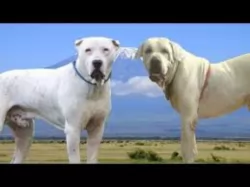 The short coat is low maintenance and as a moderate shedder too, all that is required really is to give your Bully Kutta a good brush twice a week to keep the coat in good condition.
The short coat is low maintenance and as a moderate shedder too, all that is required really is to give your Bully Kutta a good brush twice a week to keep the coat in good condition.
Brush his teeth 2 or 3 times a week with special canine-toothpaste and toothbrush to prevent plaque build-up. He’s a drooler too, so you will need to wipe his face and maybe your clothes of slobber from time to time.
This strong, muscular dog of yours will require an excellent diet. It’s always wonderful if you can give him home-made food such as vegetables, rice and meat. These days you get excellent commercially manufactured food for dogs, and your vet can advise you on the best food for a large, active dog such as the Buly Kutta.
Raw meat is absolutely essential for your dog from time to time and will ensure that his coat doesn’t become dull and with bald spots. Remember, that before dogs were domesticated they used to live on raw meat, so see that he gets some raw meat to prevent skin disorders. Make sure your large pet has a constant supply of fresh, cool water.
Bully Kuttas are going to need a walk every day in the form of exercise. If he is socialized you can take him into the park for ball games. He is a dog that will require plenty of space.
 Recommended daily amount is usually found on the type of the food you choose. They like dry food, and if you are not quite sure what brand of the dry food you should choose, seek a vet’s advice. The Australian terrier has a healthy appetite, but he almost never overeats. How much your Australian terrier eats depends on his size, age, metabolism, and activity level.
Recommended daily amount is usually found on the type of the food you choose. They like dry food, and if you are not quite sure what brand of the dry food you should choose, seek a vet’s advice. The Australian terrier has a healthy appetite, but he almost never overeats. How much your Australian terrier eats depends on his size, age, metabolism, and activity level.
Their coat requires moderate maintenance. That means that you don’t have to groom your Australian terrier every single day, but being aware of the importance of grooming him at least twice a week is a key because lack of adequate care may lead to skin diseases. Make sure not to bathe them too much, but you can be free with their haircut. They can grow very sharp toenails, so they should be clipped regularly. Ear and teeth must be kept clean.
Lots of outdoor activity. They are lovable kind, so don’t be reserved towards them. It’s important to begin training and socializing your pup as soon as possible. Training sessions need to be consistent, firm, short and clear. Grooming is a must since you will want to prevent the tangles and mats.
Find a place for them where you can take of the leash and let them run free. They love chasing birds, butterflies and anything that flies above. They will chase small rodents, other dogs and cats. After you thought you Australian terrier how to play with other dogs and cats, they will be the most wanted guest in the whole neighbourhood. Find a place where they can dig holes – and they will be so happy that they probably won’t hear you calling them home.